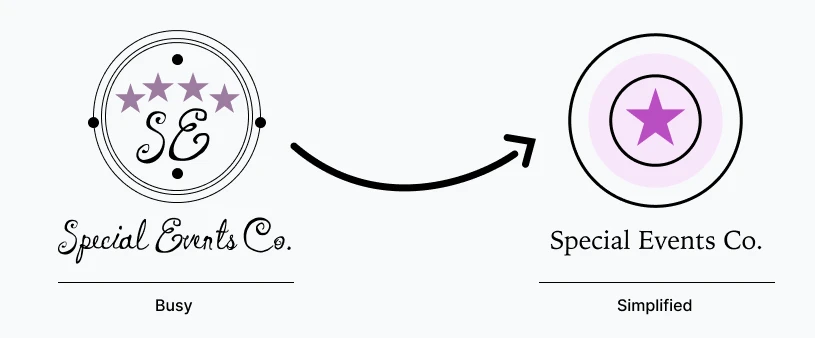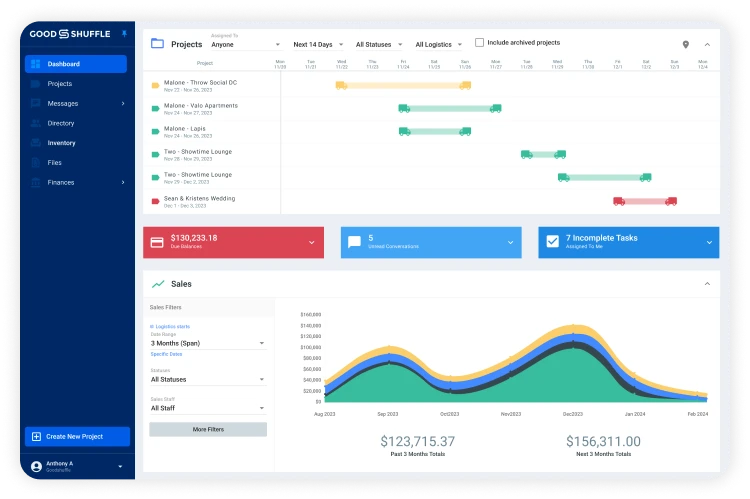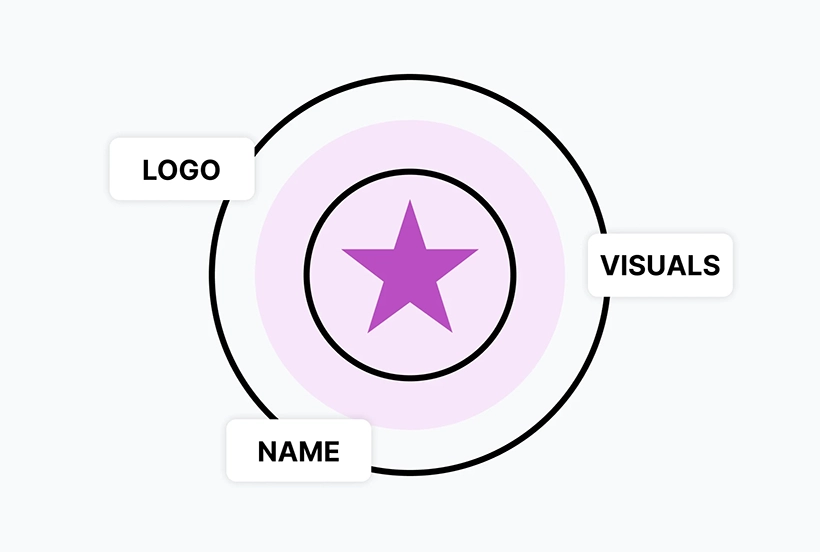As your event company grows and evolves, its initial branding may not reflect your current direction, values, or offerings. And what’s worse, it could be holding you back from your ideal target audience. If this is the case, it’s probably time for a rebrand.
64% of consumers say that shared values create a trusted relationship with a brand or company. Said another way: your customers need to understand how your values align with theirs before they’re willing to spend money. You can’t risk a disconnect between what your clients are expecting and what your company is providing. Rebranding your event company is vital to make sure this doesn’t happen.
When you break it down, creating an effective rebrand simply means realigning with the roots of your company and ensuring that its mission is projected externally to your audience. From understanding what your specific rebrand will include to marketing it successfully to your clients, this post includes all the steps you need to cover your bases.
Reasons to Rebrand Your Event Company
Before starting your rebrand, the first thing you need to determine is your reason behind it. It’s important to note that not everyone needs a rebrand. If nothing has shifted internally and your company’s design feels up-to-date and aligned with your values, a rebrand could do more harm than good.
However, if you feel like your company might be in need of a reboot, here are some signs that a rebrand is right for you:
- Are you expanding your inventory and/or services?
- Are you moving into another niche that doesn’t align with your current brand?
- Do you have more funds available now than when you first started?
Once you answer why a rebrand is the right move for your event company, understanding what will go into your rebrand becomes simpler.
5 Keys To Execute Your Rebrand
Now that you’ve identified why your event company needs a rebrand, you can finally implement these five key steps for success.
1. Consider Your Audience and Competitors
Keep in mind that rebrands take time and money to complete. Three out of five people say they won’t use a company if their logo looks terrible, even if they have good reviews. Just the same, if you don’t consider your audience’s needs, they’ll move on to the next event company.

To avoid this, make sure you have the funds and the timeframe to carry out the rebrand from start to completion. Rushing to rebrand can lead to careless mistakes and inconsistencies that might confuse your client base.
Additionally, look at other event companies who are serving as inspiration for your rebrand. They could have the audience your company is trying to gain or a brand that you’re trying to emulate. Keeping your current and goal clients in mind, pinpoint what is missing from these competitors that your company can provide. If you can’t find a specific issue, think about what your company can do to create a more seamless experience for clients. This will be what sets you apart.
2. Assess Your Core Brand Elements
Whether you’re going for a complete overhaul or just a new design that has evolved with current times, the most important job that goes into rebranding is keeping everything aligned with your company’s brand identity. This can be anything from your values and audience’s needs, all the way down to your name and logo design. Typical core brand elements include:
- Brand Name
- Logo
- Tagline or Slogan
- Color Palette
- Fonts
- Graphics or Icons
- Brand Voice
- Brand Values
- Brand Story
If you are considering a logo or name change, make sure there is a solid reason behind it, like increasing brand consistency if your company is shifting gears. Otherwise, a logo or name change can create confusion for your audience. In most cases, you’ll want to leave them be and instead refresh other elements to help your company stand out.
What you choose to refresh is directly related to the shift or lack thereof that is happening internally at your company.
3. Level up Your Website
When rebranding your event company, take a look at your website from a visitor’s perspective. Is it easy to navigate, without clutter, and aligned with your brand’s style? If not, it’s time to level up.
First, you should use this checklist to make sure you’re not accidentally making one of these top ten website mistakes. From auto-playing video to not listing your location on your homepage, these mistakes result in a lot of lost business. Make sure you follow best practices to win folks over when they visit your website.
Second, consider Goodshuffle Pro’s Website Integration, which smoothly syncs your existing website to your Goodshuffle Pro account so you can immediately display your inventory items on your website. Plus, the wishlist feature makes it easy for your customers to shop for their ideal look, submit a quote request, and get in touch with you. Clients love it because of how quick and easy it is, and vendors love it because of how much time it saves.
In addition to being incredibly functional, the Website Integration is also beautiful. It elevates your website to match your brand while impressing customers. Even if you’re not technologically savvy, the Website Integration gives you a professional site that keeps your clients coming back.

4. Be Consistent Across All Channels
Throughout the entirety of this blog post, we’ve harped on just how necessary consistency is when it comes to your rebrand. A consistent presence on all platforms can increase revenue by 23% and increase brand awareness as a whole. This means that your logo, your brand voice, your graphics, and the rest of your brand elements should all be the same or have the same personality across your website, your social media, your showroom, and any other assets.
Additionally, having consistent branded content across all social platforms is more effective than the traditional pre-roll ads. If your rebrand lacks consistency, the effectiveness of traffic-driving branded content could be minimal.
If your company’s logo or name is changing, take into consideration all of your owned assets that may be stamped with your brand. These assets can include LLC documents, invoices, receipts, and more. Every asset should display your new branding. Don’t forget to run an audit before and after the rebrand to ensure you didn’t miss anything.
5. Show off Your New Look
So your rebrand is finally complete. Now it’s time to present it to the world!
The first way to announce your rebrand is through an email marketing campaign. This loops all of your current clients into the “why” behind your company’s change, and how they will benefit. It makes your clients feel seen and part of the move, rather than being left on the sidelines. Include images to help visualization as well as any important information or necessary steps, if any, your clients need to take to help the transition.
Consider showing off your company’s new look at trade shows. This can range from local shows to larger ones. Having your own booth gives other event companies and clients alike the ability to see your company’s rebrand and develop in-person relationships.
Lastly, spread the word on social media. You can create blog and social content about the rebrand itself, or content that generally fits your new look. By doing this, your audience will get familiar with your new brand, which helps your rebrand become a lasting success.
Need ideas for blog content? Read here to spark some fresh ideas.
Helpful Resources To Kick off Your Rebrand
- Website Development + Integration partners through Goodshuffle Pro: connect with an expert to customize your website integration or build a new website. This will add the right brand feel to your website that you will definitely want.
- Upwork: find freelance designers for hire who will upgrade your brand design.
- 99designs: create and find budget-friendly and custom logo designs.
- BrandActive: read tips on rebrand budgeting for long-term ROI.
- Resource on Color Theory: best practices for what to take into account when creating a new logo or design.
- Resource on Rebrand Announcement: how to authentically announce your rebrand to current clients via email.
This blog post was written by Jenna Harris, a Content Marketing Intern at Goodshuffle.
Learn More About Goodshuffle Pro
Book a demo to see our event business software in action.







